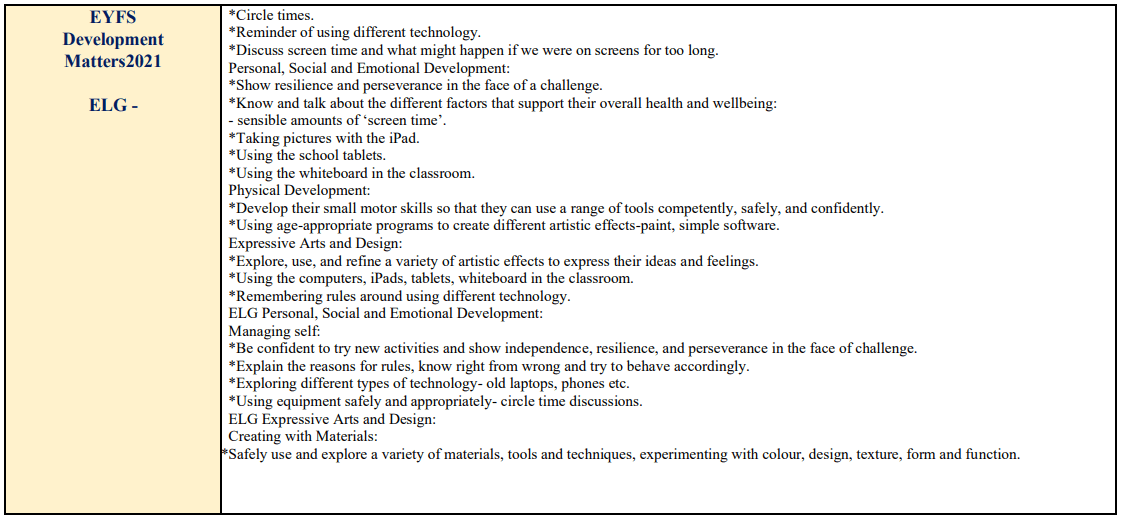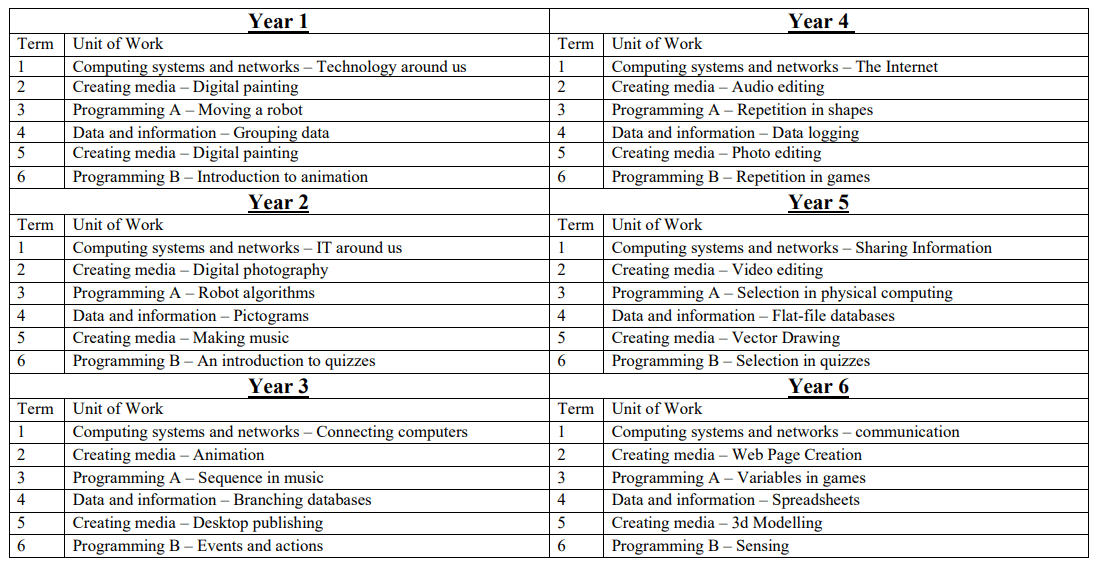Computing
Old Stratford Primary School Computing Curriculum Rationale
Intent
Our computing curriculum aims to provide high-quality education that equips pupils to use computational thinking and creativity to understand and change the world around them. It is designed to develop their skills in computer science, including understanding and applying the fundamental principles and concepts of computer science, such as abstraction, logic, algorithms, and data representation. Pupils will learn to analyse problems in computational terms and have practical experience in writing computer programs to solve such problems. They will be able to evaluate and apply information technology, including new or unfamiliar technologies, to solve problems. Furthermore, pupils will become responsible, competent, confident, and creative users of information and communication technology. Computing will be taught through a range of activities that include creating and debugging simple programs, using logical reasoning to predict the behaviour of simple programs, and working with variables and various forms of input and output. The curriculum will also cover computer networks, including the internet, and how they can provide multiple services, such as the world wide web, and the opportunities they offer for communication and collaboration. Finally, pupils will learn to use technology safely, respectfully, and responsibly, recognise acceptable/unacceptable behaviour, and identify a range of ways to report concerns about content and contact.
Implementation
The curriculum will be implemented by following a progressive approach that focuses on four key areas: computing and system networks, creating media, programming, and data and information. Each area is designed to provide students with a comprehensive understanding of computing principles and concepts, allowing them to develop practical skills that they can apply in real-world scenarios. Through a combination of theoretical and practical learning, students will learn how to use computational thinking and creativity to solve problems and create innovative solutions using technology.
Computing and System Networks:
- Pupils will learn about computer networks, including the internet, and how they can be used for communication and collaboration.
- They will also learn about different types of devices and their uses in creating networks.
- Pupils will explore the advantages and disadvantages of different communication technologies and develop an understanding of how to use them safely and responsibly.
Creating Media:
- Pupils will learn how to use a range of software, including internet services, to create media such as images, sound, and video.
- They will also learn about the principles of design and how to apply these to create effective media.
- Pupils will explore the use of media for communication and expression and develop an understanding of the impact of media on society.
Programming:
- Pupils will be taught to design, write, and debug programs to achieve specific goals.
- They will learn about the different elements of programming, including sequence, selection, and repetition, and how to use these to create efficient and effective programs.
- Pupils will explore the use of programming to solve real-world problems and develop an understanding of the potential of programming to transform the world.
Data and Information:
- Pupils will learn about different types of data and how to manipulate and interpret them.
- They will develop an understanding of the importance of data in decision-making and problem-solving.
- Pupils will explore the use of data and information in a range of contexts, including science, business, and society, and develop an understanding of the ethical and legal implications of data use
Impact
It is our aim that the impact of this curriculum will be that pupils will gain a deep understanding of computational thinking and digital systems, allowing them to develop their skills in programming and use information technology to create a range of content. They will also become digitally literate and responsible users of information and communication technology, equipped for the future workplace and active participants in a digital world. Through the implementation of this curriculum, pupils will develop key skills that are essential in a world increasingly reliant on technology.
Unit Overview



